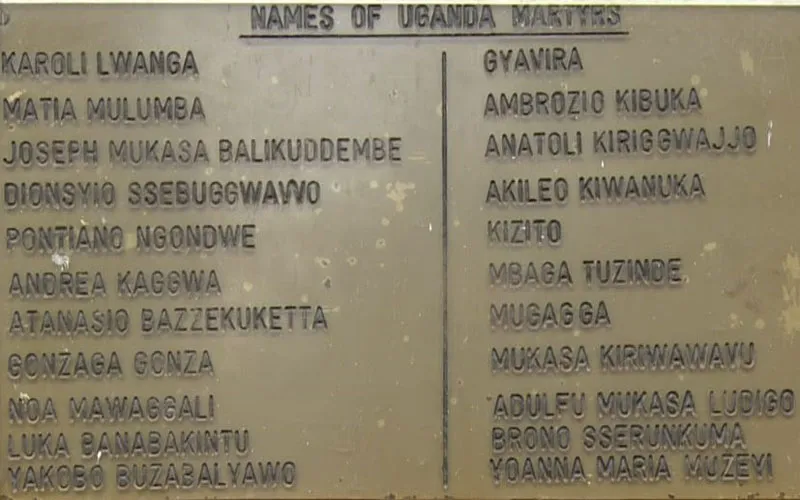Color red on the logo, the Bishops states, symbolizes “martyrdom and victory through the shedding of blood,” while the colors of the Uganda National flag represent “the nationality of the Martyrs.”
The theme of the day, “Do Not Lose Heart (2 Corinthians 4:1-18)” is also inscribed on the logo, with Bishop Jjumba saying, “Challenged, inspired, supported and interceded for by the Uganda Martyrs’ faith, heroism and courage; we must remain steadfast in faith.”
To facilitate the celebrations, the Bishop of Masaka revealed that the diocese requires 950 Million Uganda Shillings (US$258,433), which will be used to cater for the days’ logistics including the welfare of the two choirs that will animate the Holy Mass, preparation for the Solemn Liturgy among other activities.
To realize the budget, the Prelate revealed that the diocese has already started mobilizing funds from parishes and institutions as well as reaching out to “individuals of good will, corporate companies, other dioceses and the Government of the Republic of Uganda.”
Bishop Jjumba thanked the Uganda Episcopal Conference (UEC) for giving Masaka Diocese the opportunity to oversee the animation of the annual celebrations and the Government of Uganda and its various organs for all the support so far, “especially the security agencies that have always ensured the security of persons and property.”
(Story continues below)
Martyrs’ Day, a national public holiday in Uganda commemorates the 22 Catholics killed alongside their 23 Anglican counterparts on the orders of Kabaka Mwanga II, then King of Buganda Kingdom between 1885 and 1887.
There are also two Ugandan martyrs of a later period, who died at Paimol in Uganda’s Lira diocese in October 1918. They include Daudi Okello and Jildo Irwa. Pope St. John Paul II beatified the duo in 2002.
“Our Bishops decided that all the 24 be recognized on June 3. The other two, Blessed Jildo Irwa and Blessed Daudi Okello are however honored on October 20 as per the Ordo,” Fr. Philip Odii, the Executive Secretary of Social Communications of UEC told ACI Africa Friday, February 28.
St. Charles Lwanga and his 21 companions were beatified on June 6, 1920 by Pope Benedict XV and canonized on Mission Sunday, October 18, 1964 by Pope St. Paul VI at St. Peter’s Basilica, Rome.
Five years after the canonization of the 22 martyrs, Pope St. Paul VI became the first Roman Pontiff to visit sub-Saharan Africa when he visited Uganda, a visit that took him to Namugongo Shrine, the site of the martyrdom as well as the establishment of the Symposium of Episcopal Conferences of Africa and Madagascar (SECAM).








